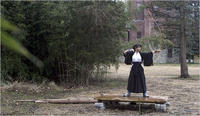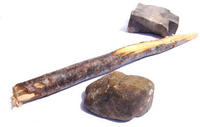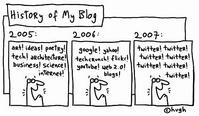|
This is my dynamic, frequently updated homepage. This is a NewsLog, also known as a WebLog or Blog.
Everything is evolving, so don't assume too much.
People to watch:
Adina Levin
Andrius Kulikauskas
Britt Blaser
Catherine Austin Fitts
Chris Corrigan
Clay Shirky
Dan Gillmor
Dave Pollard
David Allen
David Weinberger
Dewayne Mikkelson
Dina Mehta
Doc Searls
Elisabet Sahtouris
Elizabeth Lawley
Euan Semple
Florian Brody
Frank Patrick
Gen Kenai
George Dafermos
George Por
Graham Hancock
Greg Elin
Hazel Henderson
Heiner Benking
Inspector Lohman
Jean Houston
Jerry Michalski
Jim McGee
Jim Moore
John Abbe
John Perry Barlow
John Robb
Joi Ito
Jon Husband
Jon Lebkowsky
Jon Udell
Jonathan Peterson
Judith Meskill
Julian Elvé
Julie Solheim
Kevin Marks
Lawrence Lessig
Leif Smith
Letecia Layson
Lilia Efimova
Lisa Rein
Marc Canter
Mark Oeltjenbruns
Mark Pilgrim
Mark Woods
Martin Dugage
Martin Roell
Mary Forest
Matt Mower
Max Sandor
Michael Fagan
Mike Owens
Mikel Maron
Mitch Kapor
Mitch Ratcliffe
Nathalie dArbeloff
Netron
Noam Chomsky
Paul Hughes
Peter Kaminski
Phil Wolff
Philippe Beaudoin
Ray Ozzie
Raymond Powers
Rebecca Blood
Roger Eaton
Roland Tanglao
Ross Mayfield
Scott Lemon
Sebastian Fiedler
Sebastien Paquet
Skip Lancaster
Spike Hall
Steven Johnson
Stuart Henshall
Thomas Burg
Thomas Madsen-Mygdal
Thomas Nicholls
Timothy Wilken
Todd Suomela
Tom Atlee
Tom Munnecke
Tom Tomorrow
Ton Zijlstra
Lionel Bruel
Loic Le Meur
Nancy White
Mark Frazier
Merlin Silk
Robert Paterson
Colby Stuart
Nova Spivack
Dan Brickley
Ariane Kiss
Vanessa Miemis
Bernd Nurnberger
Sites to watch:
Action without borders
BoingBoing
Co-intelligence Institute
Disclosure Project
Disinfopedia
Disinformation
Edge
Electronic Frontier Foundation
Explorers Foundation
Forbidden Science
Free Expression Network
Friendly Favors
FutureHi
Global Ideas Bank
Greater Democracy
HeadMap
Imaginify
Independent Media
Manufacturing Dissent
MetaFilter
Nanodot
Smart Mobs
ThoughtsOnThinking
WorldChanging
YES Magazine
Absara
Collective Intelligence
Collective Web
Do No Harm
Emergent by Design
Escape Velocity
Junto
NotThisBody
Openworld
Rhizome
Space Collective
Webcamorama
French:
Emmanuelle
Manur
Elanceur
Loeil de Mouche
IokanaaN
Blog d'Or
Le Petit Calepin
GeeBlog
Absara
Guillaume Beuvelot
Ming Chau
Serge Levan
Jean Michel Billaut
C'est pas Mécanique

I live in Toulouse, France where the time now is:
02:19
Unique Readers:

Primarily
Public Domain
Everything I've written here is dedicated to the
Public Domain.

The quotes from other people's writings, and the pictures used might or might not be copyrighted, but are considered fair use. Thus, overall, this weblog could best be described as being:
Primarily Public Domain. |
Syndication:
 ![Validate my RSS feed [Valid RSS]](http://www.newciv.org/pic/valid-rss.png)
|
| Tuesday, October 27, 2009 |  |
|
|
|
 This is an avatar exercise/process from the book Resurfacing by Harry Palmer: This is an avatar exercise/process from the book Resurfacing by Harry Palmer:Objective: To increase the amount of compassion in the world.
Expected Result: A personal sense of peace.
Instructions: This exercise can be done anywhere that people congregate (airports, malls, parks, beaches, etc.). It should be done on strangers, unobtrusively and from some distance. Try to do all five steps on the same person.
Step 1. With your attention on the person, repeat to yourself:
"Just like me, this person is seeking some happiness for his/her life.
Step 2. With your attention on the person, repeat to yourself:
"Just like me, this person is trying to avoid suffering in his/her life.
Step 3. With your attention on the person, repeat to yourself:
"Just like me, this person has known sadness, suffering, and despair."
Step 4. With your attention on the person, repeat to yourself:
"Just like me, this person is seeking to fill his/her needs."
Step 5. With your attention on the person, repeat to yourself:
"Just like me, this person is learning about life."
Variations:
1. Done by couples and family members to increase understanding of each other.
2. Done on old enemies and antagonists still present in one's memories.
3. Done on other life forms.
[ Inspiration | 2009-10-27 23:59 | | PermaLink ] More >
|
|
| Monday, October 26, 2009 |  |
|
|
|

appreciation a. favorable critical estimate. b. sensitive awareness; especially : recognition of aesthetic values. c. an expression of admiration, approval, or gratitude.
It's a nice thing, appreciation. Problems, obstacles, issues, conflicts - they tend to start dissolving when appreciated.
I suppose I noticed it first when I had just learned NLP. I was working as a coach and therapist, and people would come in with such wonderful problems that somehow were quite easy to alleviate. OK, it is actually an NLP trick: to reframe a problem as an accomplishment. But what works is just as much that one honestly admires or appreciates the cleverness of people's problems.
The client comes in and says "I'm really depressed today" and I say "Cool! How did you do that?". OK, I've got to watch out to not be too enthusiastic, or our rapport would go out the window, but that's basically my attitude. I'm not going to feel sorry for them for feeling bad, starting to look all droopy myself, and then have them explain all the many sad and very compelling reasons why they're depressed. No, if we assume that they'd rather not feel depressed, I'd rather find out how they make themselves feel like that. I.e. what do they remember, what do they look at, what do they tell themselves, etc. There is usually an exact strategy there. And if we can find that, they can probably learn to feel something more useful.
But actually I don't even need to use any technique to make them discover that. Even if I just listened, while greatly appreciating what they're doing, it would tend to start dissolving. I mean, as opposed to listening while being all in agreement with the reality of their depression. Oh, it might still take some work, but things change much faster when you appreciate them.
Works the same with my own problems. If I think about them while agreeing that they're problems and they're hard to solve, then that's probably the case. If I look at them innocently and alertly, appreciating whatever I find, they usually don't stay the same for very long.
Most of the problems of the world are clever and complicated, but rather silly. I'm not saying they'll all go away by just looking at them in amused amazement, but they probably become easier to solve. And what really is the problem is usually what some people think and feel, not what really is there. It wouldn't be a problem for everybody on the planet to have enough food and clean water, if enough people felt a bit differently about it. The problem is mental, not a lack of resources.
[ Inspiration | 2009-10-26 23:48 | | PermaLink ] More >
|
|
| Sunday, October 25, 2009 |  |
|
|
|
 It is a good thing that many people have keen perceptions of the material world around us. I mean, that you can experience something and be pretty sure what you experienced and that it really is there. It allows for developing mental models that are calibrated with the material world, e.g. science, and thus to get very consistent results to certain very consistent actions. You'd probably want a surgeon to have very keen perceptions. It is a good thing that many people have keen perceptions of the material world around us. I mean, that you can experience something and be pretty sure what you experienced and that it really is there. It allows for developing mental models that are calibrated with the material world, e.g. science, and thus to get very consistent results to certain very consistent actions. You'd probably want a surgeon to have very keen perceptions.
But many otherwise pleasant people are not good at distinguishing between perceptions and opinions. I.e. they don't quite know the difference between knowing something because you've observed it and verified it, or because you hallucinated it. An opinion based on an emotional reaction is a lousy source of knowledge compared to perception or measurement. Folks who use guessing as their method of knowing stuff or making decisions can probably be perfectly adequate in many professions, but not in the ones where it is important to get things right, such as engineers or pilots.
Then again, keen perceptions and an absence of hallucination is not quite enough. You wouldn't want to be a passenger in a car driven by somebody who only goes by what they see and hear. You certainly shouldn't let such a person ride a motorcycle, as they'd probably not survive more than a few weeks. What would be missing would be the kind of intuition one has when one has mastered a skill. Where you somehow predict that a car is about to turn in front of you, despite that there's nothing visually that gives it away. Where sub-conscious or extra-sensory cues tell you something useful, despite you not knowing exactly how.
I suppose I'm thinking about this because I'm trying to convert parts of my life from being based on emotions, opinions and hallucinations to being based on something more real. Oh, I have very sharp perceptions in some areas, and super-human intuition in others, but in fields like finance, business, marketing, or even in "work" in general, I have more difficulty than I ought to have. Blindly making dumb decisions and failing to learn what works, even when frequently exposed to success.
A good start is to be able to recognize when there's something one doesn't know, and to then go and learn it.
[ Knowledge | 2009-10-25 17:04 | | PermaLink ] More >
|
|
| Friday, October 16, 2009 |  |
|
|
|
 It has happened many times in my life. Something impossible or at least very improbably happened. Something too coincidental and convenient to quite be a coincidence. You know, the world changes, you step off into a different dimension than where you were traveling, and suddenly the previous reality seems but a vague memory, like the dream you were having and then you wake up. If you don't somehow write it down or tell somebody about it, it evaporates very quickly. It has happened many times in my life. Something impossible or at least very improbably happened. Something too coincidental and convenient to quite be a coincidence. You know, the world changes, you step off into a different dimension than where you were traveling, and suddenly the previous reality seems but a vague memory, like the dream you were having and then you wake up. If you don't somehow write it down or tell somebody about it, it evaporates very quickly.
You could say it is something neurological and psychological, and you're welcome to believe that. It doesn't really matter, as it happens on multiple levels. I've certainly noticed it as a coach or therapist as well. When the client really changes, it is something instantaneous. Suddenly their old self doesn't seem familiar to them any longer and a new way of being feels like the path of least resistance. Of course I know that I took them through certain steps, and it also works better if they have a reasonable and logical explanation for why things now are different. Doesn't matter if the explanation matches what "really happened".
It would be a pity to believe that the world is only material, consistent and boring, and the only thing that gets results is hard work and stringent logic. And that any experience of magic, miracles, synchronicity, or anything else improbable is just errant neurons that we use to fool ourselves into thinking that life is meaningful. Whereas the opposite is a lot more fun, more empowering, and quite possibly more real, dependable and tangible. What we think we know about the world is spinning in circles in our heads. But sometimes the real thing breaks through. It is most likely and lucid at times where our mental models clearly don't match what is going on any longer.
So, note to self: Pay attention to the moments of magic, where life shines through, despite the odds. Endeavor to steer by those signs of life, rather than by the obsessive need to be consistent with yesterday.
[ Dreams | 2009-10-16 03:06 | | PermaLink ] More >
|
|
| Thursday, October 15, 2009 |  |
|
|
|
 It is such a fundamental thing that we do, and still most of us are hardly aware of it. We abstract the real world into each our separate set of abstractions, and then we get pissed off with each other when our abstractions turn out different. It is such a fundamental thing that we do, and still most of us are hardly aware of it. We abstract the real world into each our separate set of abstractions, and then we get pissed off with each other when our abstractions turn out different.
I'm using the word abstract as a verb here. Defined as "to summarize or epitomize". I.e. you simplify something into a much smaller and maybe more portable version. We'll often further abstract the abstraction, any number of levels deep.
If I walk around with some kind of image in my mind of what a table is, it is because I have created an abstraction of the real thing. That's called learning. Even for such a simple thing it is a relatively complex abstraction, allowing me to recognize tables, even when they have many different sizes and colors and shapes and number of legs. Being able to recognize most all tables is very handy, much easier than to just perceive some kind of fog of trillions of sub-atomic particles.
I also abstract my mental model of tables further by accepting that such a thing is called "table". Which is just as handy, because now I can talk about it, and send some statement about tables over even great distances, and somebody else can receive my communication and expand it into the understanding that I'd like a place to sit at their restaurant. As long as we're talking about physical objects, this usually works out with minimal problems.
But when we do the same thing, repeatedly, with more fuzzy and complex problems, we become more and more likely to get into trouble. I might form complex ideas about "relationships", "work", "right and wrong" or "freedom", and they might be very far removed from any actual experience. Opinions about abstractions of ideas one heard described by somebody else who had abstracted them from interpreted abstractions of abstractions of experiences that somebody once had.
The horrifying thing is that many of us go around being very sure about the absolute truth in our abstractions. You know, being very, very sure that our point of view or our religious belief or our scientific theory is fact. That's of course raving lunacy, but since the majority of us are doing it, it isn't worth the trouble to try to lock such people away in insane asylums. So, we just fight about it, have wars and elections about it, and try any which way we can to coerce others into accepting our abstractions, because they're the right ones.
The way out, towards more sanity, is to become conscious of abstraction. I.e. become aware of how and when you're abstracting, and how much, and based on what. And becoming able to go in the other direction, if necessary.
It goes kind of like this, through various levels:
- There's something fundamentally there. The quantum soup. Reality with a capital R. All-that-is. The Multiverse. God. Something way, way beyond anything we can talk about or theorize about.
- Nevertheless, something happens within that indescribable something.
- It leaves traces - light, sound, smell, radiation etc
- It is perceived through a nervous system - seeing, hearing
- It is interpreted into a picture, a sound, etc
- We make interpolations, extrapolations, guesses, to fill in the blanks
- We invent or select words that describe our experience
- We have a semantic or emotional reaction to what we think happened
- We make mental models of how things work and what to expect
- We communicate with language, exchanging ideas about ideas
- We construct bodies of knowledge, beliefs, systems, e.g. science
There are many more layers of levels to this, but you get the idea. All of this is useful, of course, allowing us to operate at a "higher level". But when we mistakenly start assuming that an abstraction is better than that which it was abstracted from, we start going insane. The anti-dote is to always remain conscious of abstractions.
Further reading: Wikipedia: Abstraction, Consciousness of Abstraction, Wikipedia: General Semantics.
[ Knowledge | 2009-10-15 08:32 | | PermaLink ] More >
|
|
| Wednesday, October 14, 2009 |  |
|
|
|
 "The most difficult part of the warrior's way is to realize that the world is a feeling. When one is not-doing, one is feeling the world"
--Don Juan / Carlos Castaneda The abstractly thinking conscious human mind is one of our greatest assets. And one of the biggest reasons we act stupidly, individually or collectively. When you've frozen the world into a set of convenient abstractions that you can move around in your head, you've also lost touch with the magic of what's really there and what could be there.
A healthy dose of nonsense, surrealism and humor can shake us out of our addiction to reality defined by abstractions of the past, and into something more interesting. It apparently also makes us smarter.
Maybe more interesting, anything that temporarily can get our egocentic left-brain thinking-thinking minds out of the way gives us the opportunity to connect with the world more directly, through our more right-brain wholistic parallel processing senses. Or, said differently, if we can stop doing what we otherwise do obsessively and repetitively, we might be able to actually feel the world.
[ Energy | 2009-10-14 13:03 | | PermaLink ] More >
|
|
| Monday, July 27, 2009 |  |
|
|
|
 Hm, I didn't get around to saying anything about the Reboot conference, and it is already a month ago. Hm, I didn't get around to saying anything about the Reboot conference, and it is already a month ago.
As usual, a great event, an opportunity to hang out with smart creative people, and lots of stimulating concepts. I wish I had had a few weeks afterwards to actually act on the ideas that came up. See some of the videos here.
I did a presentation called "The art of not-doing". The proposal is here. It went in a somewhat different direction than the proposal, though. I ended up using only the first 20 minutes for my actual presentation, and the last 20 minutes for a group Dialogue. That was an experiment. The talk was essentially to stimulate/inspire/provoke a certain state of openness, then followed by the type of Dialogue, à la David Bohm, where one sits together, quietly, mindfully, and one speaks when something actually needs to be said. I think it worked out well.
My slides can be found at Slideshare. But since the slides only give half the story without the actual speech, there's now also an e-book version, which explains things more than the slides, so it better can stand alone. Thanks to Toothless Tiger Press
As I usually try to stuff a lot into a small space, I might well expand on some of the themes I touched upon in upcoming postings here.
[ Diary | 2009-07-27 16:56 | | PermaLink ] More >
|
|
| Tuesday, June 16, 2009 |  |
|
|
|
 What is the baseline of technology that can be available to anybody? How can the bar be raised, and secured? What is the baseline of technology that can be available to anybody? How can the bar be raised, and secured?
There is a lot of power in being the authority who decides whether people are allowed to have access to a technology or not. A lot of the technology we're taking for granted is very fragile and can easily be turned off. The government of Iran turned off the SMS network during their phoney elections, because they knew that the opposition would use SMS to organize.
How can we organize stuff, knowledge and technology and communication in particular, so that it can't be shut down at the whim of people in power?
We'd like to imagine that the Internet is a thing like that, which routes around damage and which can't be shut down. Which would be nice, but it probably isn't true. They can filter all internet traffic for all of China. They can leave it out altogether in North Korea. And a few backbone providers control the big pipes that it all goes through. None of it would work without the root name servers and the domain registries. It is very far from the grassroots thing we somehow imagine it to be.
But one could as well invent an internet that actually really couldn't be shut down. Something with a mesh network over radio, something that people could solder together even if their government didn't like it.
It goes through all aspects of our society. We're extremely dependent on stuff that is incredibly centralized and outside our sphere of influence. Most of the elements of our civilized existence could be yanked away in anything from seconds to days. By governments or by catastrophe or by business interests.
I'd prefer for our civilization to be more resilient than that. Which it would be if most of us would be able to jumpstart important elements of our existence, in case they are missing one day, for whatever reason.
Food - what would you do if your local supermarket didn't get any more deliveries, or they no longer accepted your plastic card to pay for it? It is quite easy to grow food yourself, but are you?
Communication - if you get locked out of the internet or the phone network, because you downloaded a pirated movie 3 times, or because your government decided it is bad for your morals, or because of some systemic failure - what would you do? Wait until it came back? That's a bit pathetic.
Manufacturing - what could you manufacture if it somehow wasn't available in the store any longer? What could you manufacture if you were stuck on a desert island? Shockingly little. But if you were better educated, you'd get much further.
Buckminster Fuller defined wealth as the number of days forward that you could sustain a certain group of people. A zillion dollars does you no good if the stores and banks are closed. The real wealth is that you can make stuff that sustains life, without needing permission from anyone.
Previously: Immaculate Telegraphy
[ Culture | 2009-06-16 00:39 | | PermaLink ] More >
|
|
| Monday, June 15, 2009 |  |
|
|
|
 Immaculate Telegraphy is a blog charting out an attempt to go out into nature and create ... the internet. Or, more precisely: Immaculate Telegraphy is a blog charting out an attempt to go out into nature and create ... the internet. Or, more precisely: Could humans at any point in history, given the right information, construct an electronic communication network? To test this hypothesis, Substitute Materials will attempt to build a functional electric battery and telegraph switch from materials found in the wilderness, using no modern tools except information from the internet. The telegraph will be a first step towards an ahistorical internet. I find this kind of thing tremendously interesting. What is real knowledge? Knowledge that you can take it with you and that actually will be worth something? Lots of people are experts in stuff that would be completely useless if it weren't for a whole bunch of other things that would need to be in place. I'm a computer programmer - that'd do me no damn good if nobody would be able to manufacture computers.
Our society is ridiculously inter-dependent. It was hundreds a years ago since there last were people around who were experts in all major fields at the same time. Today we're a society of specialists who most of them would be helpless and useless if it weren't for a whole bunch of other specialists. It is a fragile system. Civilization could very well collapse if it got a big enough bump.
A simple job like that - go out in nature and create a telegraph - extremely primitive technology by today's standards - is an almost insurmountable task. OK, it is doable, of course, but very hard.
It ought to be a basic boy/girl scout thing that everybody would learn to do as kids. How do you jumpstart the basic elements of our civilization in case it gets lost, or in case you get lost?
[ Diary | 2009-06-15 00:58 | | PermaLink ] More >
|
|
| Thursday, June 11, 2009 |  |
|
|
|
 I suppose that one of the reasons that I and many other people don't blog as much as they used to is that we're microblogging. "Microbloging" is one of the words for what you do on Twitter or Facebook. Instead of attempting to write articles, one does little one-liners to answer the question "What are you doing?", preferably a number of times during the day. I suppose that one of the reasons that I and many other people don't blog as much as they used to is that we're microblogging. "Microbloging" is one of the words for what you do on Twitter or Facebook. Instead of attempting to write articles, one does little one-liners to answer the question "What are you doing?", preferably a number of times during the day.
You can squeeze quite a bit into 140 characters, and it inspires people to be more clear and succinct. It might inspire people to be mindful of what they actually are doing, what they feel, what they actually have to say. Then again, it might make others go on an on about nothing much.
A lot of my friends in social networks are some kind of tech gurus. People who'd speak at tech conferences. Many of them are talking a lot about twitter. How it somehow is an answer to everything, replacing blogs, bookmarks, search engines, forums, etc.
And I think it is cool too. It is just not quite there yet. You can't have much of a conversation on twitter. And you can't really talk about what you're really doing. Nobody's working on twitter, for one thing. Oh, people are flying around, meeting interesting people, speaking at conferences, etc. Which for some people is some kind of work. But what's missing is all the detail, what's actually going on, how you actually do it, who pays for it, etc.
Both blogging and microblogging are mainly for show. Microblogging feels a bit more real, more real time, more honest. But it still has to adhere to a certain agreed format, which doesn't leave room for more than the highlights.
Most of what we'd call "work" involves a certain intensity and volume and a certain persistence. You stay with something until you've gotten some kind of result. That takes whatever it takes, maybe trial and error, maybe a certain amount of time, certainly a certain series of actions. The log of what you actually did would be quite voluminous.
You could have a meeting in an instant messenger or twitter format. Or you could have a meeting in the comments of a blog. I mean a meeting where there's something you need to decide or plan or solve. That could easily be a hundred messages exchanged between the people who're involved. But nobody would have the patience for listening to that on twitter, unless they were part of the same project. Too much, too boring, too revealing.
Which is why nobody shares much of what they really do, other than markers. "I arrived in New York", "I'm going to the Google board meeting", "There's a fly in my coffee". We get a sense of what kind of stuff this person is up to, and a sense of who they are. But no sense of what they actually do that's working.
OK, I have a bit of the same problem with people in the real world: that it usually is a well guarded secret what they really do. But that's a different discussion. My point here was more about the search for a format for online interaction that both allows a peripheral awareness of what many people are up to, and that also allows more intensive activity to happen, without having to "go somewhere else" and do it. Maybe Google Wave?
[ Information | 2009-06-11 18:53 | | PermaLink ] More >
|
|
<< Newer stories Page: 1 2 3 4 5 ... 97 Older stories >> |
|

This is a collage of things that catch my eye, things that need to be said, and stuff I really care about
TRUTH
BEAUTY
FREEDOM
LOVE
TECHNOLOGY
|
| Mon | Tue | Wed | Thu | Fri | Sat | Sun |
|---|
|
1 |
2 |
3 |
4 |
5 |
6 |
| 7 |
8 |
9 |
10 |
11 |
12 |
13 |
| 14 |
15 |
16 |
17 |
18 |
19 |
20 |
| 21 |
22 |
23 |
24 |
25 |
26 |
27 |
| 28 |
29 |
30 |
31 |
|
|




